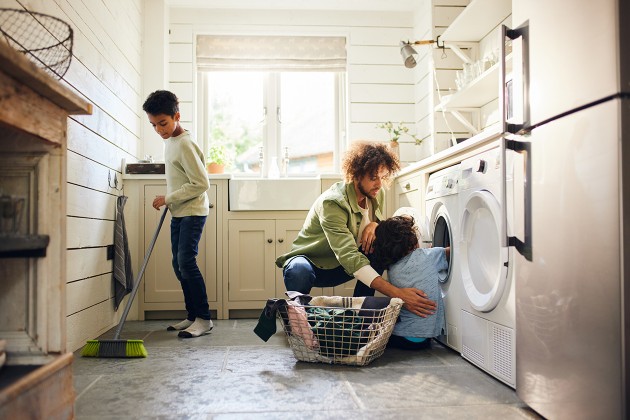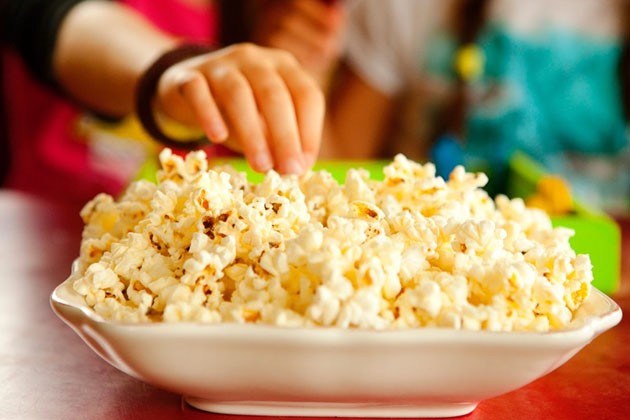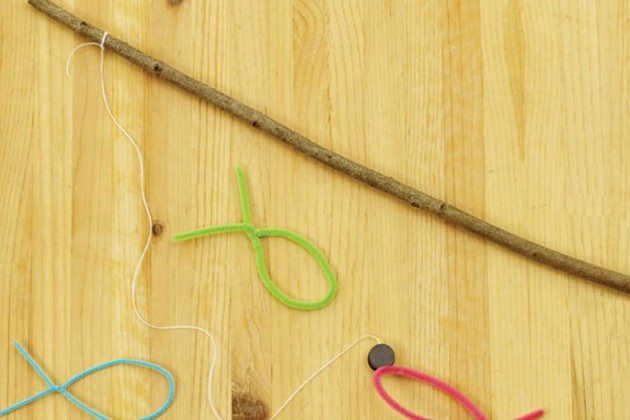Teaching Kids to Do Chores: An Age-by-Age Guide

Few parents want to clean up after their children constantly. Sure, kids make messes and need help from adults — but children as young as 18 months old can learn how to do simple chores and contribute to the household.
“One of the reasons that we should make our kids do chores is because it is a part of adult life, and it’s our job to prepare them for that,” Dr. Deborah Gilboa, a parenting and resiliency expert, told Highlights. “Another reason we should teach our kids to do chores is so they know how to physically do those skills, like … how to do laundry.”
Children as young as 18 months old can learn how to do simple chores and contribute to the household.
Gilboa noted that parents need to help their children tackle both personal responsibility and household chores.
“There’s a difference between chores and personal responsibility,” she said. “Personal responsibility is, ‘Take your wet diaper and go put it in the diaper pail.’ Personal responsibility is, ‘Take your dirty clothes from the day and put them in the hamper.’ ‘Put your toys away.’ Those aren’t chores. Chores are things that we do for the benefit of the household.”
Encouraging children to pitch in at home can free parents up to tackle the kinds of household chores children can’t do, such as creating a budget or helping a child navigate difficult emotions or challenging homework assignments.
“Chores are things that we do for the benefit of the household.”
“There’s so much important, valuable work for us to do as parents,” Gilboa said. “We have to get the stuff our kids could do off our plates. There are so many things that parents don’t do because we are so flipping busy. With the day-to-day chores, we should be able to delegate.”
Many parents think that paying their children to do chores makes it easier to entice them to do such tasks, but Gilboa said that’s not the case.
“When we pay kids to do chores … we give them the false expectation that they will be paid as an adult to do anything that is mundane,” Gilboa said. “We don’t want them to have the sense that … if they really don’t want the five bucks they can just say, ‘No thank you.’”
Gilboa created a chore chart that breaks down the chore's children can do by age. The following information is adapted from her chart.
18 months to kindergarten
Even a toddler can help around the house. Children as young as 18 months old can help by matching socks or matching shoes and putting them away.
“Most people have a pile of shoes by their front door, so you have this child go through and make pairs of shoes and then match the shoes to the person in your household and go put them in the bedroom of that person,” Gilboa said. “You don’t want to have your kids do things that you know you’ll have to redo just as they start to learn. Give them things that they can learn to do and become responsible for.”
Ages 4 and 5
After parents wash and fold the laundry, children in this age group can put the clothes away. Ask them to go out to grab the mail when they return home from school. Have them wipe the kitchen table after meals.
Ages 6 to 8
When the dishwasher finishes or the dish drainer is full of dishes, ask children in this age group to put them away. They can also start doing laundry by themselves and folding it at this age.
Ages 9 to 11
Ask children in this age range to make their own school lunches. They also can make their beds and rake leaves in the yard. Have them vacuum the floor and walk or play with the pets.
Ages 12+
By 12, children can shovel snow from the sidewalk and driveway. Recruit them to plan meals for the week and write a grocery list to make those planned meals. Ask them to look through their clothes and put anything that doesn’t fit aside to share with a younger sibling or to donate. They can also clean windows and bathrooms.









